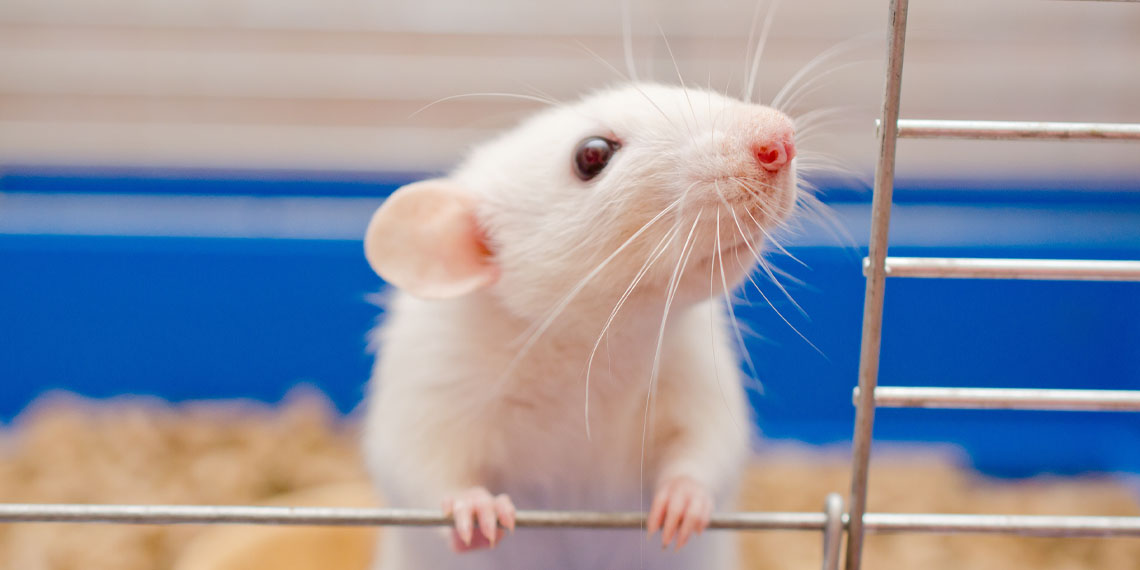
Ketamine tends to increase early life stress-induced aggression in rodent models, but it does not induce significant effects on other behavioral measures related to mood disorders, such as fear memory, anxiety-like behavior, and depression-like behavior, according to new research published in Behavioral Neuroscience. The findings provide insights into the complex effects of ketamine in the context of early life stress.
The study was motivated by increasing evidence suggesting ketamine’s therapeutic potential for conditions such as PTSD, depression, and anxiety. However, there have been conflicting reports regarding the effects of ketamine, including its potential to exacerbate certain symptoms under specific conditions.
The researchers’ own previous study had unexpectedly shown that a single dose of ketamine increased aggression in a mouse model of early life stress. This finding prompted them to further investigate the underlying reasons for this phenomenon and evaluate the broader effects of ketamine on various behavioral measures.
“We were intrigued by the increasing evidence pointing towards ketamine’s potential as a treatment for various psychiatric disorders,” said study author Jacob Nordman, an assistant professor in the physiology department at Southern Illinois University School of Medicine.
“However, earlier findings from our own lab and others suggested that the effects of ketamine can be context- and dose-dependent. We wanted to delve deeper into this complexity, especially in the context of early life stress, to better understand the therapeutic potential and limitations of ketamine.”
The researchers aimed to better understand why a single dose of ketamine increases aggression in mice exposed to early life stress, and to assess the impact of ketamine on other behavioral measures related to fear memory, anxiety-like behavior, and depression-like behavior. To achieve this, they utilized a controlled experimental design.
At around 3 to 4 weeks of age, the mice were subjected to a social manipulation: they were either housed together in groups (the control group) or isolated for a period of 4 weeks. This isolation period aimed to induce a chronic stressor, potentially impacting their behavior and responses later on.
Following the isolation period, the researchers introduced an additional factor into the experiment: Ketamine or an inert saline solution was administered via intraperitoneal (IP) injections. The dosage used was 10 mg/kg of body weight. These injections were administered 30 minutes before subjecting the mice to a series of foot shocks. The foot shocks were designed to induce an acute stressor, simulating a distressing event. The control mice were also placed in the shock box for 90 minutes. However, these mice did not receive any foot shocks during this exposure.
Seven days later, the researchers assessed and measured aggression in the mice. The results of this assessment were consistent with their previous findings, indicating that the administration of ketamine significantly heightened aggressive behavior when compared to both the control group that received no foot shocks and the group that received saline injections.
A battery of other behavioral tests was also conducted, each designed to assess different aspects of the mice’s behavior. The tests included social interaction testing, open field testing, contextual fear conditioning, light/dark box testing, and a sucrose preference test.
However, ketamine did not significantly affect nonaggressive social behavior, sociability, mobility, fear memory, anxiety-like behavior, or depression-like behavior in mice exposed to early life stress. These findings suggest that ketamine’s effects on these various behavioral aspects in the context of early life stress are limited to aggression.
“It was surprising to see that ketamine specifically targeted aggressive behavior without having any significant impact on other mood-related behaviors or locomotion,” Nordman told PsyPost.
The fact that ketamine increased aggression in mice with early life stress raises concerns that its use could potentially exacerbate symptoms among certain individuals.
“While ketamine may show promise in treating some mood disorders, its effects can be highly specific,” Nordman explained. “In the context of early life stress, a single dose of ketamine may increase aggression without affecting other mood-related behaviors. This emphasizes the need for caution and a deeper understanding before prescribing ketamine, especially in cases associated with early life traumatic experiences.”
Regarding the study’s caveats, Nordman noted that “this study was conducted in mice, so while it provides valuable insights, the direct applicability to humans needs further investigation. We still need to understand the precise mechanisms through which ketamine exerts its differential effects on various behaviors and whether these findings can be replicated in humans, particularly in clinically relevant scenarios.”
“It’s essential to understand that medications, including ketamine, are not one-size-fits-all solutions,” Nordman added. “Context, dose, individual history, and other factors can significantly influence drug responses. As we continue to explore ketamine’s therapeutic potential, it’s vital to approach its use with caution and comprehensive knowledge.”
The study, “A Single Dose of Ketamine Enhances Early Life Stress-Induced Aggression With No Effect on Fear Memory, Anxiety-Like Behavior, or Depression-Like Behavior in Mice“, was authored by Caitlyn J. Bartsch, Sophia Aaflaq, Jessica T. Jacobs, Molly Smith, Fletcher Summa, Savannah Skinner, Elana Qasem, Rylee Thompson, Zheng Li, and Jacob C. Nordman.
"behavior" - Google News
August 15, 2023 at 10:06PM
https://ift.tt/8dgfjI6
New research highlights ketamine's unexpected aggression side effects in rodent models of early life stress - PsyPost
"behavior" - Google News
https://ift.tt/MDgyJ6v
Bagikan Berita Ini














0 Response to "New research highlights ketamine's unexpected aggression side effects in rodent models of early life stress - PsyPost"
Post a Comment